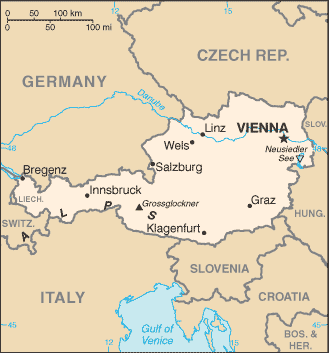.png) Austria's numerous social issues, such as high rates of risk behaviors in the country's youth, are even more shocking when one considers that the nation is predominantly Catholic. According to the CIA World Factbook, over 73% of the religious population practices Roman Catholicism, with much of the rest of the majority comprising other Protestant sects as well as a small population of Muslims. However, despite the sheer number of Catholics, the practicing of this religion seems to be based on quantity rather than quality.
Austria's numerous social issues, such as high rates of risk behaviors in the country's youth, are even more shocking when one considers that the nation is predominantly Catholic. According to the CIA World Factbook, over 73% of the religious population practices Roman Catholicism, with much of the rest of the majority comprising other Protestant sects as well as a small population of Muslims. However, despite the sheer number of Catholics, the practicing of this religion seems to be based on quantity rather than quality.
As stated in the proposal for this blog, the influence of religion on Austrian society (or lack thereof) may very well be due to the remnants of Communist influence on the nation. The years Austria spent behind the Iron Curtain, those years in which all organized religion there was banned, undoubtedly had lingering effects on its people. Although the principles of love, freedom, and righteousness that form the basic beliefs of Catholicism spelled out relief for people who had suffered years without the right of religion, these same people seemed to have unwillingly become used to the lack of religious morals. As such, they seem to practice Catholicism only in so far as saying they do. But according to the Letter of James, faith without good works has no meaning (2:15-17). In any culture, Catholicism must be lived to the fullest in order for its principles to mean anything. Saying that one is Catholic is not enough as practicing the faith in all aspects of life.
From the high number of risk behaviors in Austria's youth, it can be inferred that there is very little influence placed on including the younger generation in the faith. If this is true, one solution can be for the Church to offer the opportunity for young children to have religious education programs. While this will not automatically stop all risk behaviors in youth, increased education of Catholicism and its principles may very well be a large part of the solution to protect future generations in Austria.
Chris Milliman






